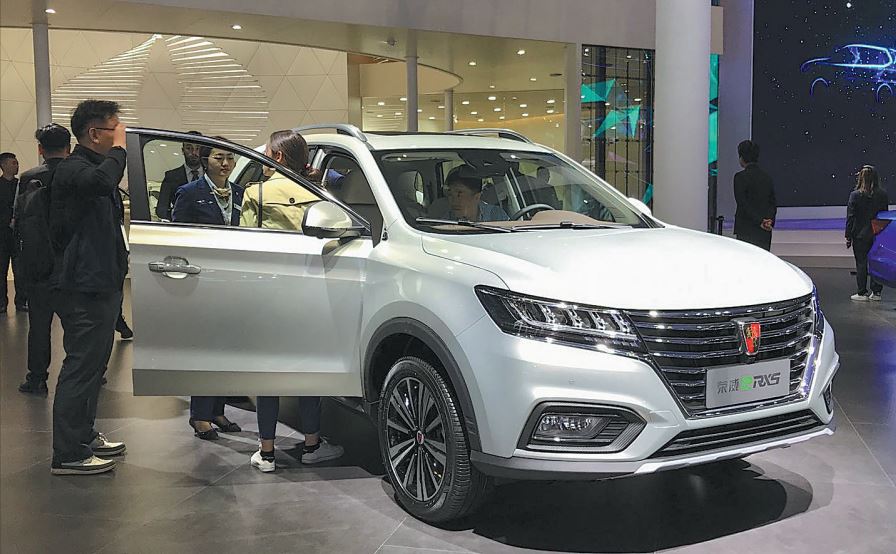Manufacturers see brakes slammed on Q1 profits

New energy vehicles break industry trend, record strong growth
Major carmakers in China from SAIC to Changan saw their profits slump in the first quarter of this year, mainly as a continuation of the poor sales from the second half of 2018, and analysts said the bleak prospects may continue for several months to come.
SAIC Motor Corp's net profit dropped 15 percent year-on-year in the first quarter to below 8.3 billion yuan ($1.2 billion), according to its financial statement released last week.
It is the first time that China's largest carmaker by sales volume has seen a fall in Q1 profit in almost a decade. Its operating revenue fell even deeper, down 17 percent year-on-year to 19.6 billion yuan.
The rare slump is mainly the result of its lackluster sales. Its total deliveries from January to March stood at 1.53 million, down 16 percent from a year earlier.
SAIC GM sales dropped 13 percent to 426,928, sales at SAIC-GMWuling shrank 25 percent to 429,012, and sales at SAIC Volkswagen, which assembles cars for the Volkswagen and Skoda brands, fell 8.8 percent to 469,897.
The joint ventures are cutting inventories at their dealerships and planning new models to reverse the sales declines.
GM has said its two joint ventures combined will roll out more than 20 new and face-lifted models in 2019, half of which will be completely new ones.
SAIC Volkswagen will also launch several new and improved products this year.
They include the new Volkswagen T-Cross crossover, improved versions of the Volkswagen Polo and Skoda Superb sedans and a sporty version of the Skoda Kamiq crossover.
GM expects China's vehicle sales to rebound in the second half of the year because of lower base numbers in the same period last year. The prediction is in line with the China Association of Automobile Manufacturers and other industry analysts. Volkswagen AG, the best-selling carmaker in China, has reduced its goal to merely outperforming the overall market, which according to the CAAM will see zero growth this year.
Changan's net profit slumped 250 percent in the first quarter, resulting in a net loss of over 2 billion yuan. It was the third straight quarter that the Chongqing-based carmaker saw a fall in its net profit.
Analysts said the poor performance at its joint venture with Ford was the main culprit. The joint venture, a major profit driver for Changan, has suffered because it was late in introducing new models into China.
Faced with stiff competition and weaker demand, Changan Ford's sales dwindled to 36,800 in the first quarter of the year. Back in 2017, the joint venture delivered 950,000 vehicles a year. Ford has restructured its China management team and sales network, but it will take some time to see the effects, said analysts.
New energy vehicle makers, however, are a totally different story with sales doubling in the first quarter to nearly 30,000.
CAAM expects sales of such vehicles to hit 1.7 million this year from 1.2 million in 2018.
Beijing New Energy Vehicle Co's net profit went up 115 percent year-on-year, with its sales reaching 25,000, up 20.46 percent year-on-year. BYD Co reported a 632 percent jump in first-quarter net profit to 749.73 million yuan, and its sales increased 5.2 percent to 117,578 vehicles in the first three months.
"New energy vehicles are expected to continue to sell well in the second quarter, and new energy vehicle sales and revenues continue to maintain strong growth," the company said in a stock exchange filing.
Competition is getting fiercer as established automakers roll out more models and startups launch their first ones, as the Chinese government phases out subsidies to spur carmakers to improve product quality and standards. Analysts said withdrawing subsidies may dent sales in the short term but will benefit the industry in the long run as it will force out those over-reliant on financial stimuli. They added that local governments' investment in charging facilities will further foster the sector in China.

